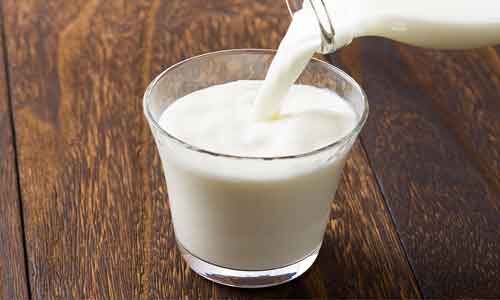- Home
- Medical news & Guidelines
- Anesthesiology
- Cardiology and CTVS
- Critical Care
- Dentistry
- Dermatology
- Diabetes and Endocrinology
- ENT
- Gastroenterology
- Medicine
- Nephrology
- Neurology
- Obstretics-Gynaecology
- Oncology
- Ophthalmology
- Orthopaedics
- Pediatrics-Neonatology
- Psychiatry
- Pulmonology
- Radiology
- Surgery
- Urology
- Laboratory Medicine
- Diet
- Nursing
- Paramedical
- Physiotherapy
- Health news
- Fact Check
- Bone Health Fact Check
- Brain Health Fact Check
- Cancer Related Fact Check
- Child Care Fact Check
- Dental and oral health fact check
- Diabetes and metabolic health fact check
- Diet and Nutrition Fact Check
- Eye and ENT Care Fact Check
- Fitness fact check
- Gut health fact check
- Heart health fact check
- Kidney health fact check
- Medical education fact check
- Men's health fact check
- Respiratory fact check
- Skin and hair care fact check
- Vaccine and Immunization fact check
- Women's health fact check
- AYUSH
- State News
- Andaman and Nicobar Islands
- Andhra Pradesh
- Arunachal Pradesh
- Assam
- Bihar
- Chandigarh
- Chattisgarh
- Dadra and Nagar Haveli
- Daman and Diu
- Delhi
- Goa
- Gujarat
- Haryana
- Himachal Pradesh
- Jammu & Kashmir
- Jharkhand
- Karnataka
- Kerala
- Ladakh
- Lakshadweep
- Madhya Pradesh
- Maharashtra
- Manipur
- Meghalaya
- Mizoram
- Nagaland
- Odisha
- Puducherry
- Punjab
- Rajasthan
- Sikkim
- Tamil Nadu
- Telangana
- Tripura
- Uttar Pradesh
- Uttrakhand
- West Bengal
- Medical Education
- Industry
High intake of cow milk products increases risk of type 1 diabetes in kids: Study

Finland: High consumption of cow milk products increases the risk of prediabetes associated with type 1 diabetes in children, according to a study conducted in Finland.
In addition, the researchers also investigated the link between cow's milk products and the development of asthma in children. The study found that the consumption of milk products subjected to high-temperature treatment, such as infant formula, was associated with a heightened risk of developing asthma.
Katariina Koivusaari, Master of Food Sciences at the University of Helsinki, observed in her doctoral research carried out at the Finnish Institute for Health and Welfare that high consumption of cow's milk products was linked to a heightened risk of developing type 1 diabetes in children who were genetically predisposed to the disease.
Type 1 diabetes is more common among children in Finland than anywhere else in the world, and its incidence has multiplied manyfold since the 1950s.
"In terms of composition, milk is a very complex substance, and the factors in milk that may be associated with risk of diseases cannot be pinpointed on the basis of the research conducted so far," Koivusaari says.
That high consumption of milk in early childhood may potentially predispose people to type 1 diabetes has already been observed in prior studies.
A link between infant formula and asthma in children?
In addition to type 1 diabetes, Koivusaari investigated the link between cow's milk products and the development of asthma in children. The study found that the consumption of milk products subjected to high-temperature treatment, such as infant formula, was associated with a heightened risk of developing asthma. A corresponding link was not observed in pasteurized milk products, in which case the treatment is less intense. The findings indicate that the processing of milk may alter its immunological properties.
With regard to asthma, prior research has provided indications of raw, unprocessed milk potentially protecting children against asthma. However, raw milk cannot be recommended for children, as it may contain hazardous bacteria. Koivusaari's doctoral thesis is the first study observing a possible link between the high consumption of milk products subjected to high-temperature treatment, which includes infant formula, and a heightened risk of developing asthma in children.
According to Koivusaari, further research is needed to understand whether the consumption of cow's milk products actually predisposes to preclinical type 1 diabetes and that of infant formulas to asthma. It may also be that the explanation for the links observed is a factor that is yet to be identified.
"Further studies should also determine which factor in milk may be connected to the risk of diseases for this to be taken into account in its processing. Individual research findings do not change nutritional recommendations, which are based on extensive research evidence," Koivusaari notes.
The dataset
The dataset utilized in Koivusaari's doctoral thesis is based on the Type 1 Diabetes Prediction and Prevention (DIPP) study, which includes more than 6,000 children born between 1996 and 2004 in the university hospitals of Tampere and Oulu.
In the study, data on the children's diets were collected with the help of food records. Cow's milk products were classified according to the adopted heat treatment and homogenization. At intervals of 3–12 months, the study participants were monitored for the occurrence in blood samples of type 1 diabetes-related autoantibodies, which indicate prediabetes, and information on asthma was collected when the children were five.
Reference:
The study titled, "Consumption of differently processed milk products and the risk of asthma in children," was published in the journal Pediatric Allergy and Immunology.
DOI: https://onlinelibrary.wiley.com/doi/10.1111/pai.13659
Dr Kamal Kant Kohli-MBBS, DTCD- a chest specialist with more than 30 years of practice and a flair for writing clinical articles, Dr Kamal Kant Kohli joined Medical Dialogues as a Chief Editor of Medical News. Besides writing articles, as an editor, he proofreads and verifies all the medical content published on Medical Dialogues including those coming from journals, studies,medical conferences,guidelines etc. Email: drkohli@medicaldialogues.in. Contact no. 011-43720751


